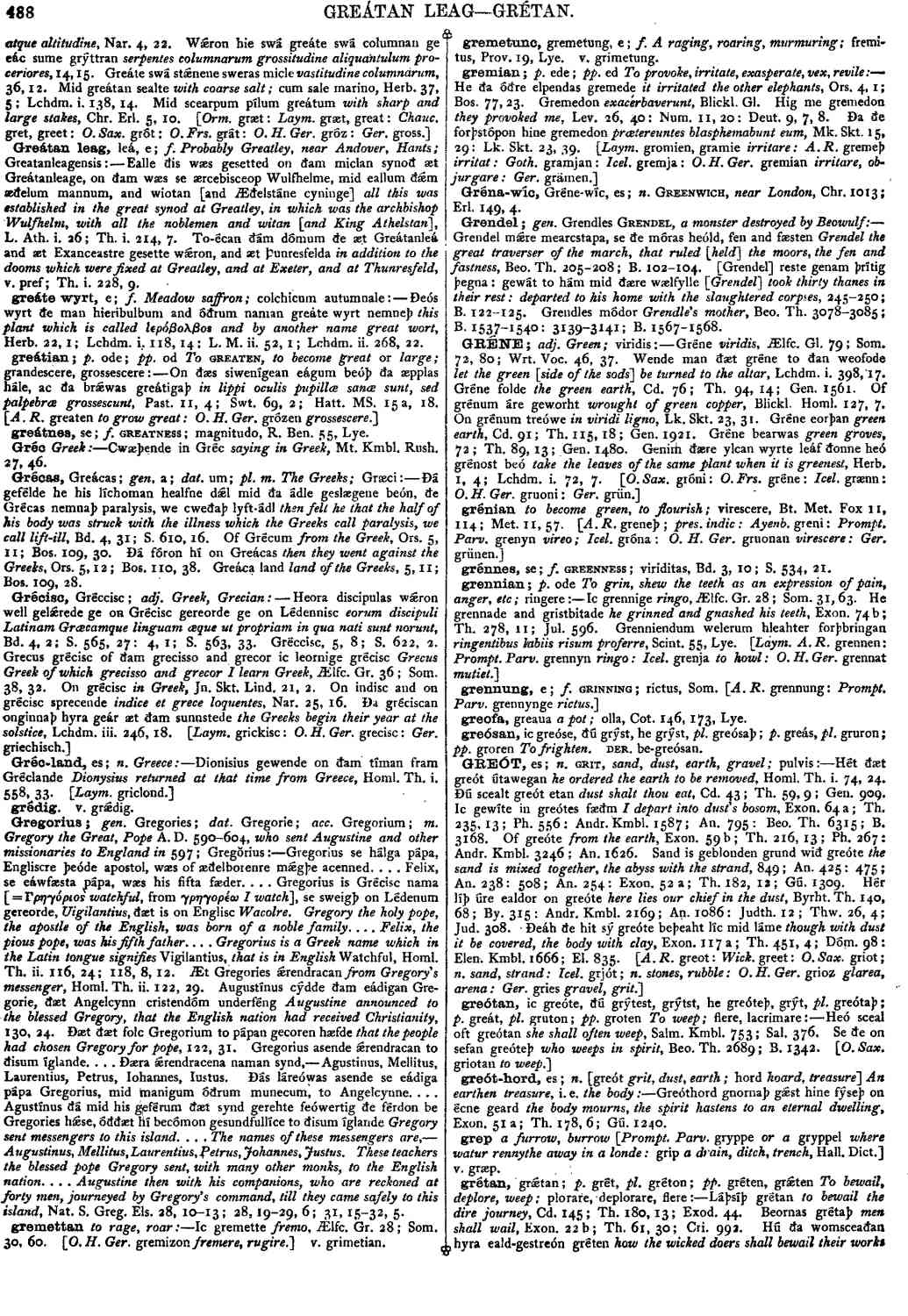GREÓT
- noun [ neuter ]
-
Hét ðæt greót útawegan
he ordered the earth to be removed,
- Homl. Th. i. 74, 24.
-
Ðú scealt greót etan
dust shalt thou eat,
- Cd. 43; Th. 59, 9; Gen. 909.
-
Ic gewíte in greótes fæðm
I depart into dust's bosom,
- Exon. 64 a; Th. 235, 13; Ph. 556: Andr. Kmbl. 1587; An. 795: Beo.
Th. 6315; B. 3168.
-
Of greóte
from the earth,
- Exon. 59 b; Th. 216, 13; Ph. 267: Andr. Kmbl. 3246; An.
1626.
-
Sand is geblonden grund wið greóte
the sand is mixed together, the abyss with the strand,
- 849; An. 425: 475; An. 238: 508; An. 254: Exon. 52 a; Th. 182, 12;
Gú. 1309.
-
Hér líþ úre ealdor on greóte
here lies our chief in the dust,
- Byrht. Th. 140, 68; By. 315: Andr. Kmbl. 2169; An. 1086: Judth. 12;
Thw. 26, 4; Jud. 308.
-
Ðeáh ðe hit sý greóte beþeaht líc mid láme
though with dust it be covered, the body with clay,
- Exon. 117 a; Th. 451, 4; Dóm. 98: Elen. Kmbl. 1666; El.
835.
Bosworth, Joseph. “GREÓT.” In An Anglo-Saxon Dictionary Online, edited by Thomas Northcote Toller, Christ Sean, and Ondřej Tichy. Prague: Faculty of Arts, Charles University, 2014. https://bosworthtoller.com/17497.
Checked: 0